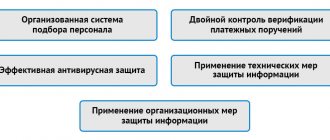Among various economic crimes, theft of public funds is one of the most common. Various officials, heads and managers of state enterprises, universities, institutes, medical institutions, etc. face accusations of such actions. – in a word, wherever budget funding is provided. Therefore, everyone needs to know what to do in situations where charges of embezzlement of budget funds are brought against you or your relatives. In this article we will look at what this offense includes, what liability it entails, and how a lawyer can help.
What is considered theft of public funds?
There are two articles in the current criminal code that can be used against those who embezzle budget money or spend it for their own purposes. The first of them is Art. 160 Misappropriation or embezzlement. It is more general and applies equally in both the public and private spheres. According to this article, the crime includes either the theft of property without the consent of the owner (embezzlement), or spending/transferring to third parties also without the consent of the owner (embezzlement). A crime can be qualified under this article if a person in the public service was entrusted with any property, and he appropriated it, sold it, or transferred it free of charge without the sanction of the state.
The second article of the Criminal Code of the Russian Federation concerning the theft of public funds is Art. 285.1. Inappropriate spending of budget funds. It is used less frequently because it includes a more limited set of actions by the offender. According to the criminal code, in this case we are talking about spending funds received as part of budget financing for purposes that were not provided for by the budget. In this case, it is necessary to prove that the accused not only spent budget money, but also had direct profit from it. Otherwise, we will be talking about negligence or other types of offenses not related to theft of funds.
Additionally, those suspected of embezzlement of budget funds are often also charged with related actions: fraud, forgery of documents, forgery, creation of a criminal organization (if the person acted not independently, but by prior conspiracy), abuse of official position, etc. Naturally, these charges, if recognized by the court, aggravate the situation of the accused and make the punishment more severe. And if we take into account the very nature of the crime, it is almost impossible to commit it alone, without the use of forged documents and entrusted powers, therefore, in most cases, theft of public funds is not the only crime for the accused.
Corpus delicti
It is important to determine the elements of the crime so that the attacker understands what punishment awaits him. We will look at the standard criteria by which an act is considered. It is extremely important to identify each point so that there is a complete picture of the crime.
What is taken into account:
- Object of crime. In this situation, it is state property. It can be different in type. The main thing is that it is valuable and belongs to the state.
- Subject of the crime. It is the person or group of persons who committed the crime. It will be necessary to consider such signs as age, social status, sanity.
- Objective side. In this case, a material motive is pursued. A person wants to make a profit through an unlawful act.
- Subjective side. Guilt, motive, purpose and emotions are determined.
It is by these moments that the crime that occurred can be characterized. It will also be necessary to determine whether this was embezzlement or embezzlement. Additionally, you will need to determine the circumstances relevant to the case. Because these criteria will determine the punishment under a specific article of the Criminal Code of the Russian Federation.
Responsibility for theft of public funds
Theft of public funds, according to the article of the Criminal Code, is a fairly serious act with appropriate punishment for the perpetrator. Depending on the size of the stolen goods and the circumstances of the case, the punishment may be as follows:
- if the crime was committed without aggravating circumstances, the perpetrator faces a fine of up to 120 thousand rubles, forced labor or imprisonment for up to two years;
- if the offense was committed as part of an organized group, and the amount of damage is significant (determined in each specific case, based on a number of factors) - a fine of up to 300 thousand rubles, forced labor, restriction or imprisonment for up to five years;
- if the amount of damage is recognized as large (over 250 thousand rubles) or especially large (over 1 million rubles), the crime was committed using an official position, the perpetrator faces the maximum punishment provided for in the article - up to 10 years in prison, a fine of up to 1 million rubles.
In addition, additional sanctions may be applied to persons found guilty under the above articles - confiscation of property acquired illegally, a ban on holding certain positions or working in certain areas, restriction of financial transactions, etc. The need for additional punishment is determined by the court based on the circumstances of the case, the identity of the accused, the damage caused, etc.
The Constitutional Court agreed with the legality of turning over the property of relatives of a corrupt official to the income of the Russian Federation
On September 30 and October 2, the Constitutional Court issued six similar rulings on complaints from former police colonel Dmitry Zakharchenko, his relatives and other loved ones, which were filed in connection with the conversion of their property to the state due to the colonel’s violation of anti-corruption legislation.
Criminal liability for bribery
Dmitry Zakharchenko has held various positions in internal affairs bodies since 2003, and since September 2015 he became deputy head of the Directorate “T” of the GUEB and PC of the Russian Ministry of Internal Affairs. In 2021, due to committing an offense discrediting the honor of a police officer, he was dismissed from service.
Later, on June 10, 2021, the Presnensky District Court found Dmitry Zakharchenko guilty of receiving a bribe in the amount of almost 3 million rubles. as part of a group of persons by prior conspiracy (Part 6 of Article 290 of the Criminal Code), as well as in interference, using one’s official position, in the activities of an investigator in order to impede a comprehensive, complete and objective investigation of the case (Part 3 of Article 294 of the Criminal Code). The convict was sentenced to 13 years in prison with a fine of almost 118 million rubles.
In addition, Dmitry Zakharchenko was deprived of the right to hold positions in law enforcement agencies related to the exercise of functions of a representative of government and organizational and administrative powers for a period of 3 years, as well as the special rank of “police colonel” and state award (case No. 01-0029/2019 (01-0334/2018).
On October 17, 2021, the Moscow City Court changed the sentence, excluding from the conviction under Part 6 of Art. 290 of the Criminal Code of the Russian Federation mentioning the commission of a crime as part of a group of persons by prior conspiracy and reducing the sentence imposed to 12.5 years in prison (case No. 10-17772/2019).
The Prosecutor General's Office demanded that the property be transferred to the state
Even before the verdict against Dmitry Zakharchenko, the General Prosecutor's Office filed two statements of claim with the Nikulinsky District Court of Moscow demanding the circulation of the property of the colonel and citizens associated with him, including his partner Marina Semynina and their minor daughter Ulyana Zakharchenko, as well as his father and mother of Dmitry Zakharchenko, to the state income.
The first claim was decided on December 1, 2021 (Case No. 02-6770/2017). The district court satisfied the demands and converted almost 375 million rubles, more than 140 thousand US dollars, over 2 million euros, 12 apartments, 15 parking spaces, 4 cars and a half-kilogram gold bar into state income.
The Nikulinsky District Court indicated that from the systematic interpretation of the provisions of sub. 8 paragraph 2 art. 235 of the Civil Code of the Russian Federation and legal norms of anti-corruption legislation, including Art. 3, 17 of the Law on control over the compliance of expenses of persons holding public positions and other persons with their income, it follows that property is turned into state income if the defendant has not provided evidence of his acquisition of the disputed property with legal income. At the same time, the Anti-Corruption Law provides for the possibility of bringing to civil liability not only relatives, but also close persons who may benefit from the commission of corruption offenses by an official, the court noted.
The first instance noted that Dmitry Zakharchenko, being in the civil service and being the actual owner of the relevant property, did not declare it, although he was obliged to do so. The remaining defendants, as stated in the decision, knew about the colonel’s service in the police department, had an idea of the level of his official income and at the same time accepted money from Dmitry Zakharchenko, spent it on their own needs, registered property for themselves, the value of which significantly exceeded the amount of wages colonel.
Since the defendants, who are close associates of Dmitry Zakharchenko, were unable to confirm that they had legal income that would allow them to acquire the relevant assets, the court concluded that this property was acquired with funds obtained by the colonel illegally. “The defendant for a long time hid <...> from society his income and its receipt from illegal sources, that he devoted himself to dishonest service - enriching himself, his relatives and persons in close relationships with him (co-defendants) from illegal sources, who consciously and purposefully became beneficiaries of his corruption offenses,” the court decision said.
The first instance directly stated that any property for which there is no evidence of its acquisition with legal income can be converted into state income. Based on the results of the appeal hearing, the Moscow City Court upheld the decision. The transfer of the applicants' cassation complaints for consideration at the court hearing by the cassation courts was refused.
Help from a criminal lawyer
If you are accused of embezzlement of budget funds, you do not need to wait until the case comes to court - even if you are innocent, you do not need to try to prove it yourself, most likely this will not work without experience and knowledge in the field of criminal law. The first thing to do in such a situation is to find an experienced embezzlement lawyer and turn to him for help. The defense attorney needs to outline all the circumstances of the case known to you: when the charges were brought forward, what exactly their essence is, whether you know anything about the episodes appearing in the case or not, etc. Based on the information presented, the lawyer will be able to build a line of defense suitable for the given case: if the client is not guilty at all, he will look for evidence of innocence and try to close the case; if guilt cannot be completely ruled out, he will do everything to reduce the severity of the punishment (for example, by looking for mitigating circumstances) . In any case, the main goal of the lawyer is to minimize the negative consequences for the client.
If the case still goes to court, the lawyer will represent your interests at all investigative activities (interrogations, experiments, examinations, etc.), monitor compliance with the laws in relation to the client, and record possible violations by law enforcement officers. As a result, this can greatly help at trial by mitigating the punishment (say, by replacing a prison sentence with a fine or probation) or getting rid of it altogether. Thus, it can be argued that only the participation of an experienced criminal lawyer in the process will help to most effectively protect your interests.
Conclusion
Theft of public funds is a fairly serious crime, for which strict sanctions are provided: up to 10 years in prison. Therefore, if you are faced with such a charge, you cannot hesitate; you must immediately seek help from an experienced lawyer. This is the only way to prove your innocence or achieve a minimally severe punishment.
Qualifying features
Before a person is convicted, qualifying criteria will need to be identified. They, again, are necessary in order to make a fair verdict. It is important to understand the size of the object and determine its value. From this it will be possible to conclude whether theft has been committed on a large or especially large scale.
It is also important to know whether the attacker committed his actions alone or whether he had accomplices. Because crimes committed by prior conspiracy are punished more severely. And in this case, all participants will suffer.
An important point is also the fact that the person abused his official powers. Let's say a citizen holds a high-ranking position in the public service. He has the opportunity to manage money or municipal property. Embezzlement of property on an especially large scale threatens a serious sentence for the offender.
Separately, it is necessary to determine whether there were negative consequences of the action. Perhaps someone was seriously harmed, perhaps even to health and life. Then the article will become even stricter, and the attacker will receive the maximum punishment.
Abuse of official position
Government officials holding high positions must remember that they must not break the law. Because if they want to make money using their powers, then they will face severe punishment. The Criminal Code has separate parts in its articles that relate to such a situation. Because if a person decides to take advantage of his official position, then he will not be able to get off with a lenient sentence.
A person can be considered to have used his work authority in the following cases:
- He received a benefit, which was expressed in money or property.
- The citizen pursued this goal in advance and understood that he was breaking the law.
- He used his position to make money. Let’s say you signed an agreement on the illegal transfer of an object or concealed the fact of a violation.
It is worth understanding that civil servants are regularly checked for integrity. Therefore, there is a high probability that the fact of criminal actions will be revealed. In this case, the person will be sued under the Criminal Code of the Russian Federation, and at a minimum he will have to pay a large fine. However, it may even get to the point where the offender is imprisoned for a long time.
Let us note that theft of state property and corruption go side by side. Because it will be quite difficult to commit theft on a large scale and not be a high-ranking employee. But for those employees who have the right to manage municipal finances and property, it is not difficult for them to commit a crime.






